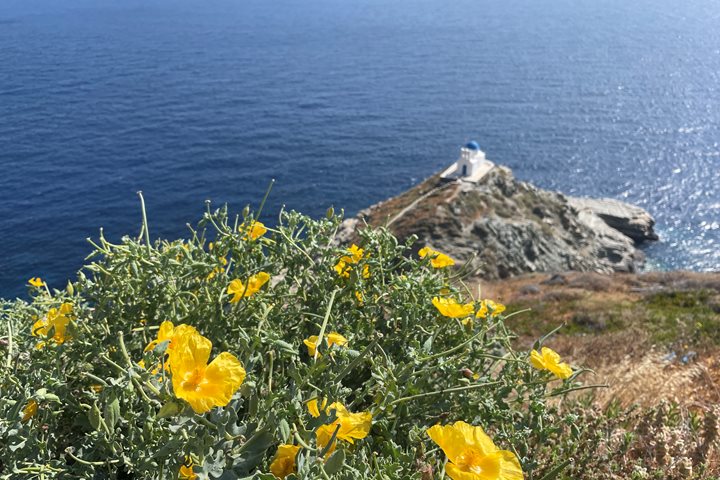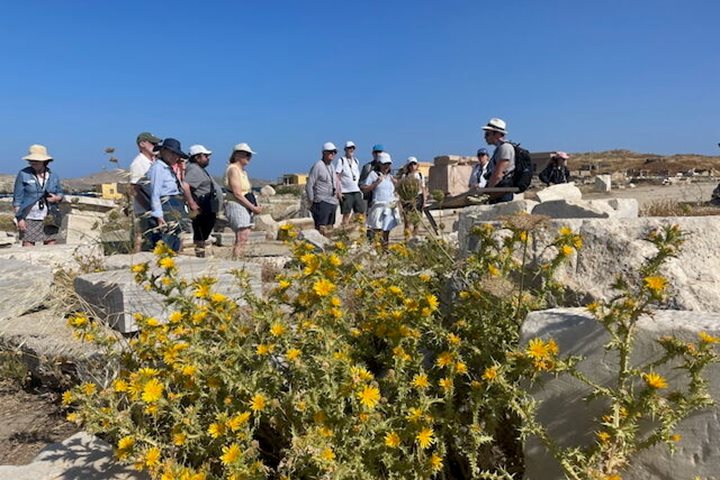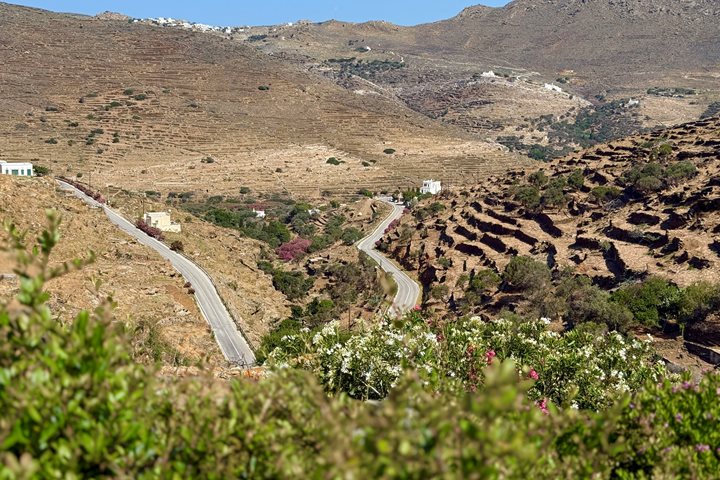Antalya (Perge & Aspendos), Turkey
When the gods are angry, the Mediterranean Sea is like an ocean; when they are happy, it is a millpond – a paraphrase of a Platonic observation. This morning, they must have been very, very happy. After our overnight voyage from Rhodes, we awoke to a cloudless blue sky, a flat calm sea, and an awesome vista of the southern coast of Turkey, arguably the most spectacular coastline of the entire Mediterranean basin, defined by huge mountains of the Taurus range that rise from the sea to heights of 6,000 feet. Today, many were still topped by the last of the winter’s snow, presenting an even more striking view.
At 9:00 a.m., the Sea Cloud crew “hit the rigging,” and within minutes the sails were up. Unfortunately, the expected wind failed to materialize, and our ship “raced” towards Antalya, our next port of call, at 1.2 knots! Since we were nearly becalmed, our captain seized this moment to announce that the zodiacs would be lowered, so we could circumnavigate the Sea Cloud to take pictures of our ship with her full compliment of sail. We all returned with images of this elegant, grand vessel that will be forever cherished.
Back on board, we heard talks by Sven Lindblad and Gil Grosvenor as we headed more smartly toward Antalya after the sails had been furled.
Another magnificent lunch followed as we neared dockside before our departure for our afternoon excursions to the ancient cities of Perge and Aspendos. As we disembarked, Turkish musicians and dancers in traditional costumes appeared by the gangway to serenade us. Their haunting folk music and their invitation to join in their dancing inspired many of our shipmates to share in this festive welcome to Turkey.
Then it was time for our buses to take us to the ancient cities of Perge and Aspendos. En route we saw firsthand the explosive economic development of Antalya’s suburbs as we drove to two ancient cities that had enjoyed a similar prosperity in Roman times. As we entered Perge, it took only a bit of imagination to sense the magnificence of this city. As we entered the main gate of the city, we were embraced on either side of the entry road by the vast remains of what had been impressive public buildings once clad in marble and adorned with elegant statuary, each in its own way announcing the former wealth and importance of this now-abandoned city. An open-water channel once ran down the main commercial colonnaded avenue to provide an early form of outdoor air conditioning for the inhabitants of this ancient metropolis. Ruins stretched on all directions from the main street of the city, challenging us to envision what discoveries might await future archaeological investigations.
Aspendos was next, featuring what may well be the best-preserved theater of the Roman Empire, one capable of seating more than 15,000 spectators. Although renovated many times during its long existence and still used for musical festivals in the summer months, its ancient core is still apparent and awe inspiring. An impromptu musical performance by a man no doubt hoping for a future audition at La Scala demonstrated beyond any doubt that this structure had lost none of its fabled acoustical qualities. Not to be outdone, a class of visiting schoolchildren followed his solo with a rousing rendition of the Turkish national anthem, with a second children’s “choir” finishing this vocal performance with a popular folk tune. We left smiling at the energy, if not the talent, of these performers who had brought an unexpected vitality to this stately ancient monument. As we left the theater, we stopped for a few last photographs of the ruins of a vast Roman aqueduct that snaked across fertile fields from the nearby hills that once was its source of water. Its impressive arches faded into the shadows of twilight as we headed back to the coastal road.
Our return bus ride to the Sea Cloud through the heavy Saturday night traffic in this bustling metropolitan area seemed a sharp contrast to the majestic quiet of the ruins of the Roman period that in their own way had spoken to the prosperity of this same area of Anatolia millennia ago. And yet, our visit today to two sentinels of the ancient past and our drive through the recent modernity of Greater Antalya reminded us all of the continuum of history.






